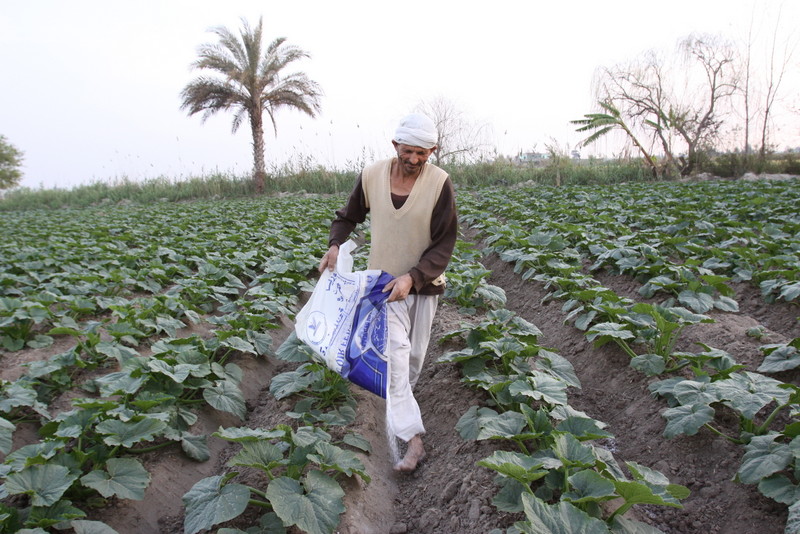
(Photo by Hassan Ibrahim\DNE)
A Ministry of Agriculture, Industry and Investment committee has suggested raising the price of fertilisers from EGP 1,500 per ton to EGP 2,000 per ton. The decision has received wide spread criticism from farmers and strong approval from fertiliser producers.
“This is a right and courageous step by the government,” said the chairman and managing director of Misr Fertilisers Production Company (MOPCO) Adel Fadel. “This is one of the main steps that need to be taken in order to solve the fertilisers’ production problem.”
Fadel mentioned that the fertilisers are sold to the government for EGP 1,450 per ton, despite the recent increase in gas prices.
He pointed out that following the gas price increase, losses at Delta Company for Fertilisers reached EGP 500m, while Abu Qir Fertilisers losses reached some EGP 480m.
“The prices of gas increased which automatically led to a decrease in the production levels of the fertilisers’ facilities,” Fadel said. “This resulted in a decrease in the supply and a price increase in the black market.”
He indicated that those who benefit from the black market would oppose this decision.
A head officer at Alexandria Fertilisers Company said that fertiliser companies have not received any information detailing whether or not prices will increase. He added that the decision is not yet approved.
The source noted that the influence on farmers will not be big, explaining that farmers can overcome the 25% price surge by increasing the crops’ sale price by EGP 10.
“A feddan of wheat needs around four bags of fertilisers,” he said. “A feddan produces 20 ardebs of wheat so if the price of ardebs increase, the farmer won’t be affected by the increases in the fertilisers prices”.
On whether increasing the price of ardebs will result in increasing the prices of wheat for the consumers, the expert stated that “this will not happen because farmers sell to the government, not the consumers directly”.
The Farmers Syndicate, however, announced its rejection to this proposal, adding that the government “seeks to diminish the farmer’s dream”.
Head of the syndicate Farid Wasel said that the Egyptian farmer is suffering with the already high prices of fertilisers. He added that farmers expected the Ministry of Agriculture to help with the promotion of their crops during times where supervision on the markets is absent.
Wasel criticised the Ministry of Industry, stating that it seeks to protect businessmen which resulted in farmers experiencing losses.
The syndicate’s head pointed out that farmers can accept those prices on the condition that new sale prices are set for their crops.
Director of research at the Egyptian Centre for Economic Studies (ECES) Omneia Helmy said that the decision to increase crop prices will either influence the general budget or the director consumer.
“If the government decided to increase the set price for crops’ purchase then it will pressure the state’s general budget,” Helmy said. “If the government doesn’t do that then the direct consumer will be influenced with the prices inflation”.




